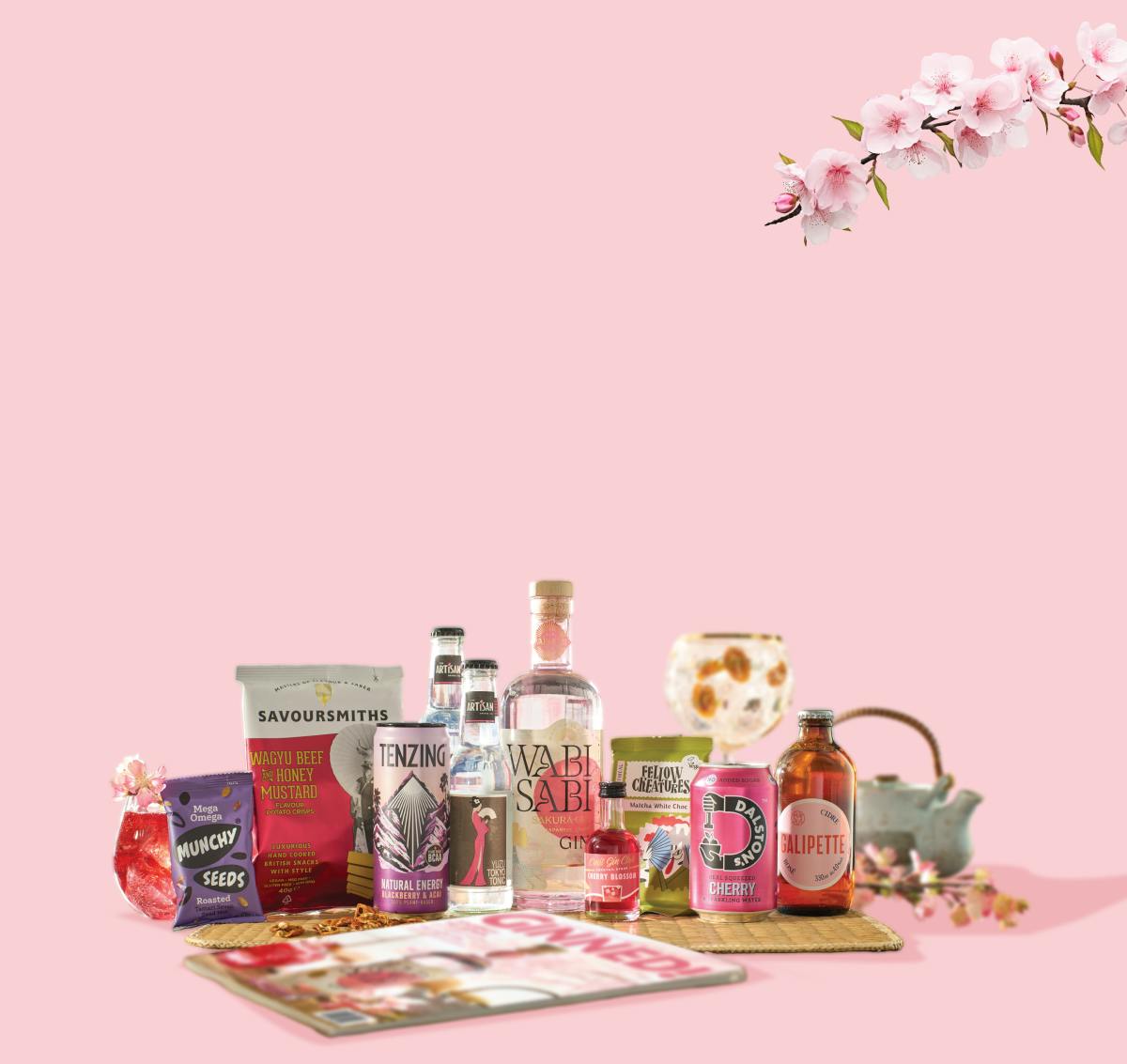Total flexibility, no commitment
A world of unique, crafted spirits
Easy, free and reliable delivery

Elephant Gin: African taste, German quality and a really big heart
Inspired by Africa, created in Germany and dedicated to changing the world, Elephant Gin is a truly inspirational spirit. Katy Menczer meets the dedicated couple behind September’s extraordinary Gin of the Month.
Elephant Gin co-founders, husband and wife Robin and Tessa Gerlach, are quite possibly the only Gin of the Month producers we’ll ever feature who will readily admit that gin was simply “a means to achieve what we wanted to achieve.”
But never fear, dear reader, because this means neither that this pair are cold-hearted business brains, hell-bent purely on profit, nor that their gin is anything less than wonderful – indeed it’s been rewarded with some of the industry’s highest accolades.
What it does mean is that this is a gin which does much more than just win awards; this is a gin that saves lives – specifically, the lives of elephants. Because 15% of all profits from the sale of Elephant Gin is donated to two charitable foundations, working hard to fight the scourge of illegal poaching in Kenya and South Africa.
But how do two Germans end up saving African elephants by making gin just outside Hamburg? It only takes the briefest of conversations with this inspirational pair to realise that the primary answer is passion – whether it’s a shared passion for wildlife and for Africa, a passionate commitment to creating the finest craft spirits, or a passionate support of each other’s dreams and ambitions.
WILD SPIRITS
Tessa and Robin met through mutual friends while they were both living in London. But while it was their ex-pat status that engineered the circumstances for their meeting among the capital’s relatively small German community, it was their shared love of Africa and, in particular, of its wildlife, that really drew them together.
Robin had travelled around Kenya, climbed Mount Kilimanjaro and explored the Serengeti in the company of a guide who was very passionate about the region’s wildlife, which sparked a desire in Robin to get more involved in helping to protect it.
Tessa, who used to work in film production, first visited the continent when she went to South Africa for a movie project. Almost as soon as she got there she realised she “just didn’t ever want to leave”, and her planned one-month stay was extended to three months. She left the filming behind, travelling widely, taking photographs and getting up close to some of the country’s incredible wildlife. This included a stint helping out at Space for Elephants, one of the wildlife foundations that Elephant Gin now supports (you can find out more about this and the other charity, Big Life, on page 12).
Back in London, the couple met up along with friends who had shared similar experiences, to reminisce about their adventures. One of these friends, Henry Palmer, would later to play a key role in helping to launch Elephant Gin as Tessa and Robin’s third partner. Tessa remembers “we would spend nights and nights talking about the land, the wildlife, what we experienced there, the people – various different ways that we got engaged with the locals, schoolchildren – but, for me, especially the wildlife.”
Indeed, this deep interest in and increasing involvement with African wildlife foundations had led Tessa to the conclusion that she had to find a way to help them in their work. “Initially I didn’t want to go back to London at all, I wanted to stay and help out,” she says. “Then I thought – maybe there is a way to do something even from Europe, to give back and to make sure that other generations will be able to encounter the same wildlife and have the same experiences that we had.
“Then in 2011, when I worked with Space for Elephants, I did actually say to them ‘I will go back and I will do something that will help you and will help this foundation because I think it’s such a great thing’.” With the promise made, there was no turning back. But she still had had to answer the question of ‘how?’.
GIN IS THE THING
As Tessa and Robin discussed the conundrum with their friends, they realised that the answer was right in front of them: gin. “After a day out in the African bush,” Tessa explains, “the drink to have is usually a gin and tonic, and it’s called a sundowner. So you meet for a sundowner drink, around a campfire or just at night with friends, and we tried to keep that tradition when we were all back in London. So when we met we would have our gin and tonic and think back to the time that we were there travelling. That’s how the whole gin thing started.”
Not only were the couple both fans of a nice G&T, Robin also already had a keen interest in distilling, and had taken a range of courses on the subject in his spare time. In addition, his trips to the African bush had sparked a fascination with the local plants and herbs used by the locals to make everything from food to tea and even brandy, and he relished the idea of being able to use these ingredients in a product that he could develop himself. Gin was the perfect solution.
“Gin obviously gives you the freedom to work with botanicals that other spirits cannot use,” he explains. “It is this beautiful spirit where you have the freedom to be more expressive on the flavour side than with, say, wine or other spirits.”
And so Robin began working with these botanicals to develop a recipe – something that allowed him to indulge his inner science geek. He embarked on a process of trial and experimentation, initially on lab-style distilling equipment before moving on to the distillery’s current Arnold Holstein copper pot still (albeit only filled to one-tenth of its 400 litre capacity).
Each new batch Robin created was tested out on family and friends when they came round for dinner, including their partner Henry. They also shared bottles among a network of bartenders who they managed to get on board with the project to help as expert taste-testers.
Throughout, Robin retained a clear idea of what he wanted to achieve. “I didn’t want to create yet another citrusy, classic gin,” he explains. “I wanted to make a gin that was a statement, with some character – something that stands out when you do blind tasting. I particularly wanted to give a platform to the flavours we discovered in Africa. But at the same time, I wanted to create something that was versatile and intense enough to be used in traditional cocktails.”
Tessa was, she admits, impressed by Robin’s dedication to and swift mastery of his subject. “I’ve never seen anyone who got inside a topic so much from the level of it being a hobby to really understanding the chemistry behind it,” she says. “It shows how through research, interest and huge passion, there definitely comes real knowledge.”
The whole development process took almost two years – although at this point, there was not a real sense of urgency as they weren’t even thinking of their venture in commercial terms. “It was all passion,” Tessa says. “Robin just had such a clear idea of what we wanted, that time wasn’t really a factor that we considered. It was more just really trying to find what matched Robin’s vision.”
As well as settling upon the right recipe, Tessa and Robin had to find the right location in which to base their distillery. They found the perfect site, around 80km east of Hamburg, on an apple farm – which in itself provided inspiration for the final gin recipe.
“The distillery building is owned by an elderly guy, close to 90 now,” Robin explains. This apple farmer is somewhat of a kindred spirit for Robin, demonstrating the same thirst for experimentation. Having produced juices with his family for decades, he began to ferment and distil his fruits, building up expertise in the subject that proved incredibly valuable to Robin and Tessa.
Distilling fresh fruit was “something I had no experience in,” Robin admits, but thanks to the help of his new landlord, fresh apples became a key botanical in Elephant Gin.
OUT OF AFRICA
As well as the unusual African botanicals that feature in the gin, the influence of that continent is beautifully expressed through design and branding. The unique, hand-crafted bottles are inspired by the adventures of early European explorers and are modelled on the shape of flasks that would fit on the saddles of their horses.
The label is based on the old-fashioned, triangular stamps that would be affixed to travellers’ letters back home, and the map that can be seen inside the bottle plots an imagined route of one of these explorers, complete with notes and doodles of the animals that might have been discovered along the way. “It was really fun creating that map!” says Tessa.
Each batch of around 600 bottles is named after a real elephant that is either protected by one of the foundations the distillery supports – Big Life or Space for Elephants – or that has played an important role in the history of Africa. Each elephant’s name is handwritten onto the labels for every batch. Our special Craft Gin Club batch is named after an extraordinary elephant called Msahle, whose story we explore further in the feature on page 12.
As well as having its own special elephant, the bottle in your box this month also has a special recipe, which uses the same mix of botanicals that Robin has carefully refined over the years, but differently calibrated to subtly change the flavour.
“We spent some time and tried to make something special for Craft Gin Club,” Robin says. “It’s a little bit more intense on the flavours. It’s the same ingredients, but a slight variation on the quantities. So in its essence, its character, it’s similar, but it’s a bit more expressive, with more of the African botanicals, so you’ll get a bit more of the herbaceous side.”
Elephant Gin has been recognised across the industry, including winning Spirit of the Year in the 2016 World Spirit Awards and Gin of the Year in the World Gin Awards. “It’s a sign that we are improving what are we are making,” he says. “I think it’s great that, out of not having that background, we’ve shown that by having a passion for and a dedication to making something great, you can make something great.”
But when it comes to what the pair are proudest of so far it’s undoubtedly “that we have given so much money to the foundations.” Through a combination of bottle sales and special events, the pair have so far raised an impressive €120,000 – certainly enough that they can “see the results on the ground, see that we helped stop so many elephants from being poached.”
While this ability to give money and to make a tangible difference is certainly crucial, equally important is the wider ongoing impact that the enterprise is having. Robin explains “something that I am extremely proud of is that we have given people a platform to participate in something bigger than just having a drink by themselves. It’s not just a gin – it inspires people who approach us saying ‘How can I get involved? Can you put me in touch with the foundation? This is the first step for me’.”
And if Elephant Gin’s founders have proved anything, it’s that the first step can lead to big things – all you need is the passion to see it through.
If you'd like to help elephants like Mshale and further Elephant Gin's cause, you can help by contributing to the two foundations it supports: Space for Elephants and Big Life.







